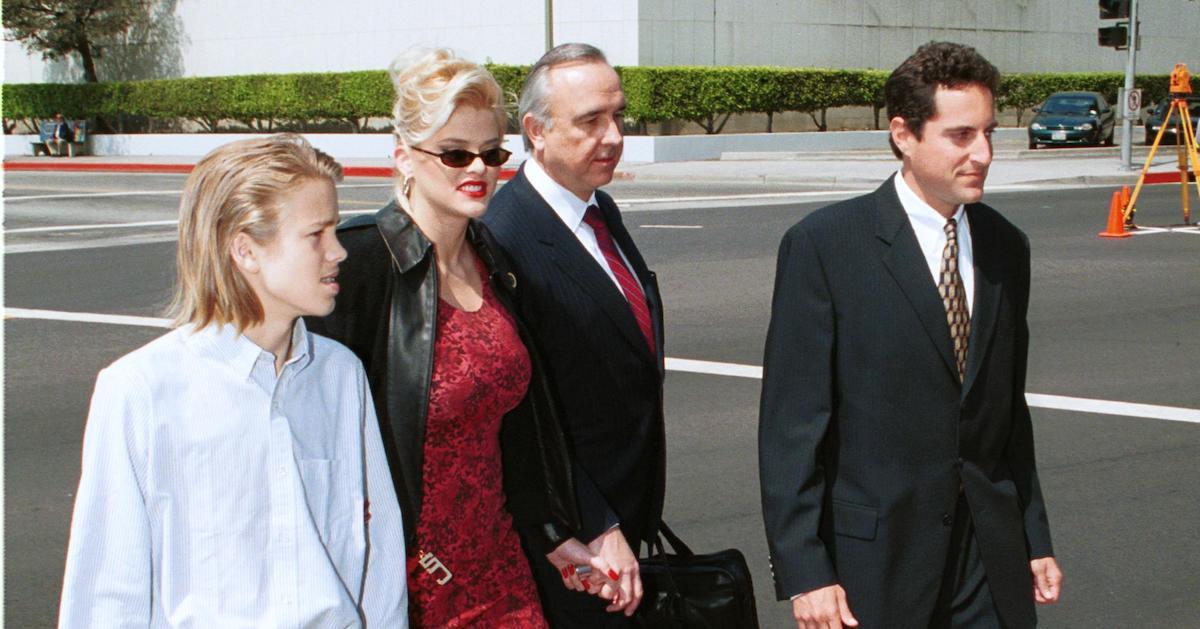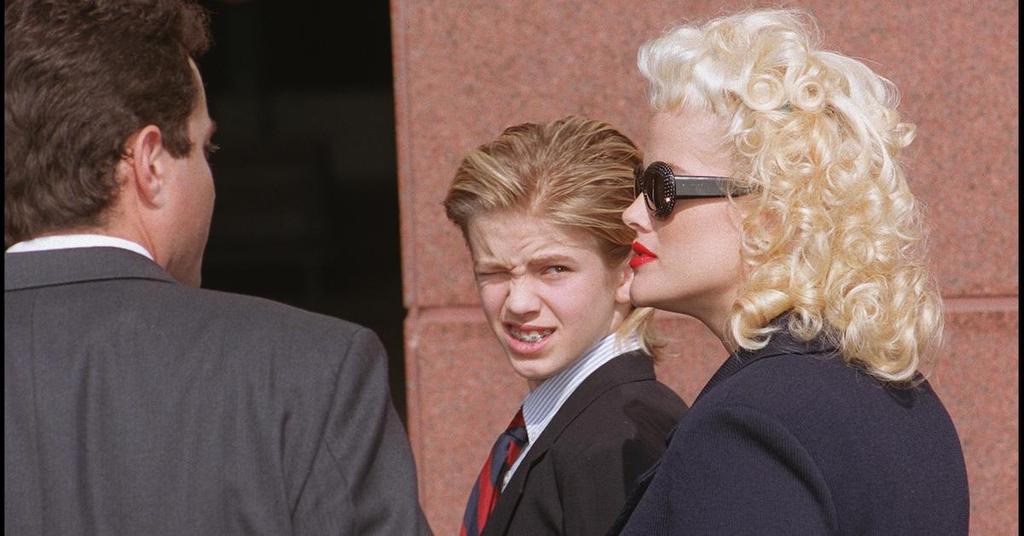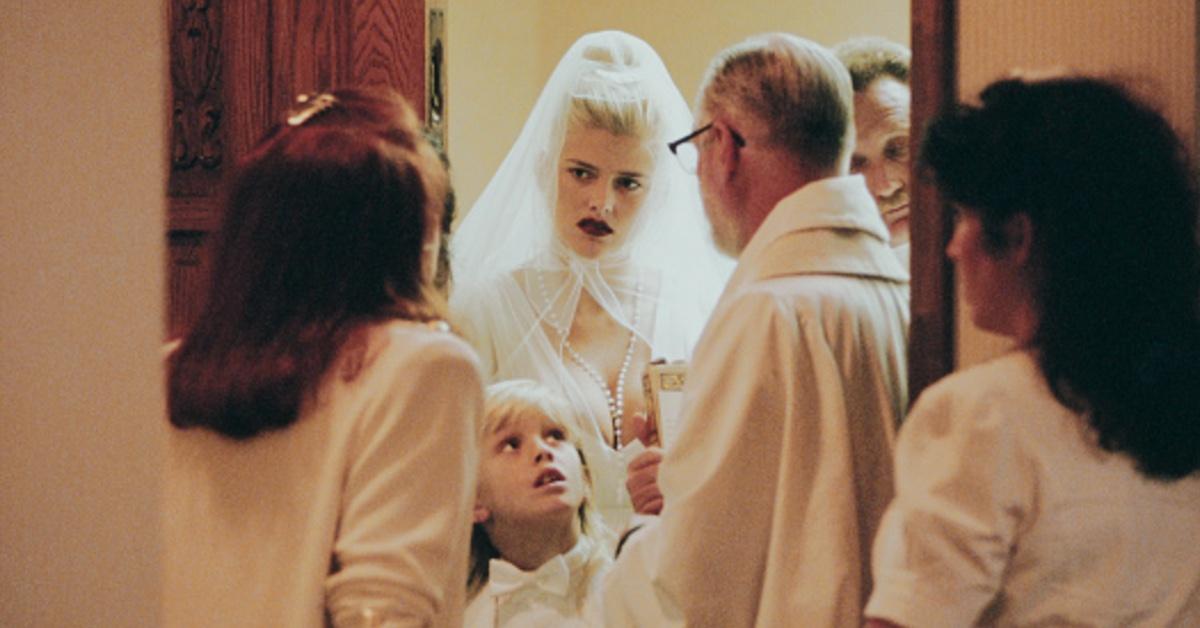What Happened To Anna's Son? Unraveling The Threads Of Unanswered Questions
Detail Author:
- Name : Alfonso Hagenes II
- Username : onienow
- Email : diamond58@langworth.com
- Birthdate : 1982-07-19
- Address : 371 Steuber Courts Goldaton, SD 72613-8148
- Phone : 575-501-0805
- Company : Breitenberg-Gutkowski
- Job : Religious Worker
- Bio : Id qui consequatur qui omnis ipsa nobis. Rerum aut eaque accusamus. Eum et nemo velit odit non voluptas dolorem et. Omnis minima officiis suscipit velit in accusantium minima.
Socials
facebook:
- url : https://facebook.com/nicolette_stark
- username : nicolette_stark
- bio : Ut laboriosam et iste. Consequatur numquam cumque et repellat.
- followers : 1893
- following : 1468
linkedin:
- url : https://linkedin.com/in/nicolette_stark
- username : nicolette_stark
- bio : Ut ea sequi incidunt est velit quisquam.
- followers : 2205
- following : 423
Have you ever found yourself wondering about a piece of a story, a missing link in someone's past, or perhaps, a question like, "What happened to Anna's son?" It's a query that, you know, just hangs in the air, sparking a deep human desire to connect the dots. This kind of curiosity, it's almost a universal feeling, isn't it? We all, in a way, feel drawn to the untold narratives, the moments that shaped lives, and the quiet mysteries that linger.
Often, when we ask "What happened to Anna's son?", we're really looking for a complete picture, a sense of closure, or just a clearer understanding of a situation. It's a question that can come from a place of genuine concern, a desire to piece together family history, or simply the natural human inclination to remember or talk about things that happened in the past. It’s like a trip down memory lane, but for someone else's journey, which can be quite compelling.
So, what does it mean to truly find out "what happened"? It’s more than just getting a simple answer; it's about understanding the circumstances, the feelings involved, and how events unfolded. It’s about communication, too, and trying to get to the heart of things, much like you might message someone to understand what happened and agree on a new date and time for something important.
Table of Contents
- The Human Desire to Know: Why We Ask "What Happened?"
- Piecing Together the Past: How We Seek Answers
- The Role of Memory and Storytelling
- When Answers Are Hard to Find
- Communicating the Unspoken: Language and Understanding
- Empathy and the Unfolding Narrative
- Conclusion
The Human Desire to Know: Why We Ask "What Happened?"
There's something deeply ingrained in us that makes us want to understand the simple past tense of events. We want to know about actions and happenings that both started and ended in the past, don't we? It’s not just idle gossip; it’s a fundamental part of how we make sense of the world and our place within it. When a question like "What happened to Anna's son?" comes up, it suggests a story that has a gap, a moment where the narrative flow seems to pause, and we, as listeners or observers, feel a pull to fill it in.
This desire, you know, it often comes from a place of connection. Perhaps Anna is someone we care about, or her story touches us in some way. Maybe her son was a part of our own lives, or the lives of people we know. It's a bit like when you hear a snippet of a song and you just have to find the rest of the tune. The incomplete nature of the question itself, that, is what drives the search for more.
And so, we look for clues, we listen to whispers, and we try to connect with others who might hold a piece of the puzzle. It’s a very human way of interacting with the world, seeking to understand the experiences of others, and trying to grasp the full scope of a situation. This curiosity, it’s quite a powerful thing, really, shaping how we remember and how we talk about shared histories.
Piecing Together the Past: How We Seek Answers
When we're trying to figure out "what happened," the process can feel a bit like detective work, couldn't it? We gather bits and pieces of information, sometimes from different sources, and try to arrange them into a coherent picture. This often involves, you know, careful listening and a good deal of patience. It's not always about finding a single, dramatic answer; sometimes, the truth unfolds slowly, through various conversations and quiet reflections.
For instance, if you needed to reschedule something, you'd message them to understand what happened and agree on a new date and time. It’s that same principle of communication and seeking clarity. You're trying to get a clear guide to the situation, to learn the time and place of certain events, perhaps with helpful guidelines and examples from others who were there. It's a collective effort, more or less, to reconstruct a shared reality.
Sometimes, the information might be indirect. We might hear an idiom in English that refers to an occasion when people remember or talk about things that happened in the past, and that could spark a new line of thought. Or we might come across old photographs, letters, or even just a passing comment that sheds a little light. It's about being open to all sorts of inputs, knowing that every Christmas is a trip down memory lane for some, and those memories might hold clues.
The Role of Memory and Storytelling
Memory plays such a huge part in answering questions like "What happened to Anna's son?" People remember things differently, and that's just a fact of life, isn't it? One person might recall a specific detail, while another remembers the overall feeling of a day. These individual recollections, when brought together, can form a richer, more complete narrative. It’s like gathering different perspectives on the same event.
Storytelling, too, is how we pass on what we know. Whether it’s a formal account or just a casual chat, stories help us preserve and transmit information about the past. Sometimes, a story might start with a simple statement, and then, you know, gradually expand as more details come to mind. It's a bit like building a house brick by brick, with each memory adding to the structure.
And in these stories, the way we use language is quite important. Knowing how to use the in, on, and at prepositions correctly can change the meaning of a sentence, and that can really matter when you're trying to get a precise understanding of a past event. Clarity in communication, it’s a very helpful tool, allowing us to share what we know effectively and avoid misunderstandings.
When Answers Are Hard to Find
It’s not always easy to find answers, especially when asking "What happened to Anna's son?" Sometimes, information is simply lost to time, or the people who held the answers are no longer around. This can be a bit frustrating, of course, leaving us with lingering questions and a sense of incompleteness. It's a common human experience, this feeling of having a puzzle with missing pieces.
In these situations, it's really about accepting that some questions might not have a clear, definitive answer. We might have to live with a degree of uncertainty, and that's perfectly okay. What matters, perhaps, is the effort to understand, the desire to connect, and the respect for the story, even if it remains partially untold. It’s about the journey of seeking, you know, rather than just the destination of finding.
Sometimes, too, the answers are complex, not a simple "yes" or "no." Life, after all, is rarely simple. It might involve a series of events, decisions, and circumstances that intertwine, making it hard to pinpoint one single cause or outcome. This requires a certain kind of patience and a willingness to explore nuances, which can be quite challenging, yet rewarding in its own way.
Communicating the Unspoken: Language and Understanding
When we try to understand "what happened," communication becomes key, doesn't it? It's not just about the words we use, but also how we interpret them. Sometimes, what's left unsaid can be just as important as what is explicitly stated. This is where a good grasp of language, even things like understanding popular internet abbreviations, can subtly help us in any online talk, or really, any conversation at all.
Think about how just and only are two words commonly used in English. We explain how they're different and how to use each, because those small distinctions can really shift the meaning of a sentence. Similarly, when trying to piece together a story, understanding the subtle shades of meaning in someone's words can be incredibly insightful. It’s about listening with more than just your ears, you know?
And sometimes, communicating about sensitive topics requires stepping outside our usual linguistic comfort zones. Imagine trying to talk about something personal with someone from a different background. You might even wonder what is "thank you" in German, or need some basic Hindi words and phrases for real conversations with locals. This effort to bridge communication gaps, it really shows a desire to connect and understand, which is pretty wonderful.
Empathy and the Unfolding Narrative
As we try to understand "What happened to Anna's son?", a big part of the process is empathy. It's about putting ourselves in the shoes of those involved, trying to feel what they might have felt, and understanding their experiences from their perspective. This kind of connection, it allows for a deeper appreciation of the story, even if all the details aren't fully known. It’s a very human way to engage with the past.
When someone shares a piece of their story, even a small one, it can feel like a gift. It might be an idiom meaning you have just said or done something great for me, and that has made this day a very great and important one. That feeling, that connection, it’s what makes the search for answers about Anna’s son, or anyone’s past, so meaningful. It’s about acknowledging the impact of events on people’s lives.
Ultimately, the narrative of "what happened" is often an unfolding one. It might not be a single, static event, but a series of moments, feelings, and choices that shaped a life. Our understanding of it can grow over time, as new information comes to light, or as we simply gain a broader perspective. It’s a bit like looking at an old photograph; the more you study it, the more details you might notice, and the more the story seems to reveal itself. You can learn more about human stories on our site, and find ways to connect with others on this page.
Conclusion
The question, "What happened to Anna's son?", really opens up a broader conversation about how we approach the past, how we seek answers, and how we connect with human stories. It highlights our deep-seated need to understand events that have already happened, actions and experiences that both started and ended in the past. We use communication, we rely on memories, and we try to piece together narratives, often navigating the nuances of language to gain clarity.
Even when complete answers are elusive, the very act of asking and seeking can be incredibly valuable. It strengthens our human connections, encourages us to listen carefully, and reminds us that every person's journey is a rich tapestry of moments, some clear, some a bit more mysterious. This ongoing quest for understanding, it’s a really fundamental part of what it means to be human.
Frequently Asked Questions About Uncovering Past Events
What are the best ways to find information about past events or people?
Well, you know, one of the best ways is often through direct communication. Talking to people who were there, or who might know others who were, can be incredibly helpful. Old records, family documents, or even local historical archives can sometimes hold clues. It's a bit like doing a simple past tense check, looking for actions and events that happened and then ended.
How can I ensure the information I find is accurate?
That's a really good point, isn't it? To make sure information is accurate, it's generally a good idea to cross-reference it. Try to get details from multiple sources if you can. If someone tells you something, you might, you know, gently ask if there's anyone else who remembers the event similarly. It's about building a picture from several perspectives, rather than just relying on one.
What if I can't find the answers I'm looking for?
Sometimes, despite our best efforts, we might not find all the answers, and that's okay. It can be a bit disappointing, of course. But in those situations, it's often about finding a way to make peace with the unknown. The journey of seeking, you know, can still be meaningful, even if it doesn't lead to a complete resolution. It's about honoring the question itself and the human desire to understand.


